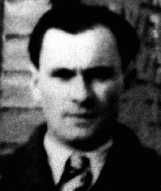You searched for: DAPP矿机理财系统定制开发【TG���������@EK7676】平台包网搭建DAPP矿机理财系统定制开发【TG���������@EK7676】平台包网搭建6QiVdSgmHA
<< Previous | Displaying results 151-160 of 267 for "DAPP矿机理财系统定制开发【TG���������@EK7676】平台包网搭建DAPP矿机理财系统定制开发【TG���������@EK7676】平台包网搭建6QiVdSgmHA" | Next >>
-
Janusz Korczak
ArticleJanusz Korczak ran a Jewish orphanage in Warsaw. He and his staff stayed with the children even as German authorities deported them to their deaths at Treblinka in 1942.
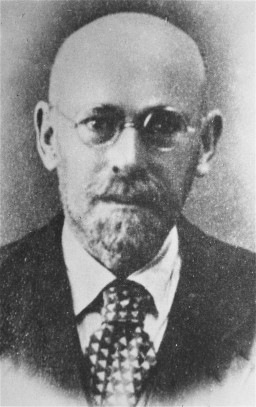
-
Helena Husserlova with her daughter, Zdenka
PhotoIn this portrait, Helena Husserlova, wearing a Jewish badge, poses with her daughter Zdenka who is holding a teddy bear. The photograph was taken shortly before they were deported to Theresienstadt. Zdenka was born in Prague on February 6, 1939. On October 10, 1941, when Zdenka was just two and a half years old, her father was deported to the Lodz ghetto. He died there almost a year later, on September 23, 1942. Following his deportation, Helena and Zdenka returned to Helena's hometown to live with…
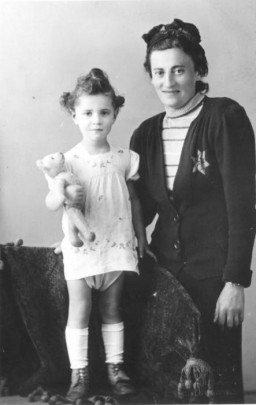
-
Portrait of Margot (Miriam) and Gerhard (Gad) Beck
PhotoGerhard and Margot's mother came from a Protestant family. She met her future husband when she went to work in the telephone exchange at his company. She converted to Judaism in 1920. The couple married in 1920, and in 1923 had their twins Gerhard and Margot. Both Gerhard and Margot would become active in Jewish youth movements, and took on Hebrew names (Gad and Miriam). On February 17, 1943, Gad was ordered to report to the temporary internment camp established at a former Jewish community building on…
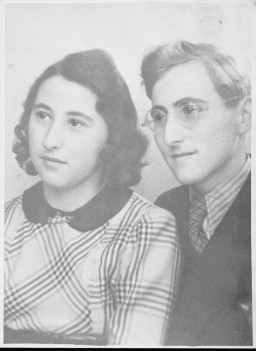
-
St. Louis Sets Sail
Timeline EventMay 13, 1939. On this date, the German transatlantic liner St. Louis left Hamburg, Germany for Havana, Cuba.
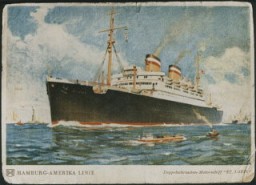
-
The 84th Infantry Division during World War II
ArticleThe 84th Infantry Division participated in major WWII campaigns and is recognized for liberating two Neuengamme subcamps, Hannover-Ahlem and Salzwedel, in 1945.
-
Axis Powers in World War II
ArticleThe three principal partners in the Axis alliance were Germany, Italy, and Japan. Learn more about the Axis powers in WW2.

-
Axis Invasion of Yugoslavia
ArticleThe Axis powers invaded Yugoslavia on April 6, 1941. Learn about the Axis invasion and partition, collaboration, and the fate of Jewish people living in Yugoslavia.
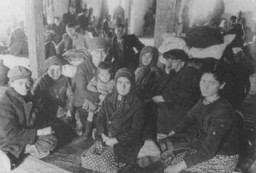
-
Stefania (Fusia) Podgorska
ID CardStefania was born to a Catholic family in a village near Przemysl. They lived on a large farm and cultivated several different crops. While her father worked with the farmhands in the fields, Stefania's mother, a trained midwife, managed the house and cared for her eight children. 1933-39: Stefania's father died in 1938 after an illness. With her mother's approval, she joined her sister in Przemysl in 1939. At 14 she worked in a grocery store owned by the Diamants, a Jewish family. They treated her like…
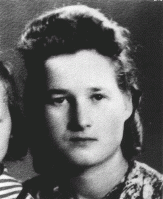
-
Yitzhak (Irving) Balsam
ID CardYitzhak was the second of four children born to religious Jewish parents. The family lived on the Polish-German border in Praszka, a small town where Yitzhak's father worked as a tailor. His work was not steady, and the family struggled to make ends meet. Yitzhak attended Polish public school in the mornings and Hebrew school in the afternoons. 1933-39: At 4 a.m. on September 1, 1939, the Balsams were awakened by an explosion. The Polish army had blown up the bridge over the Prosna River to impede the…
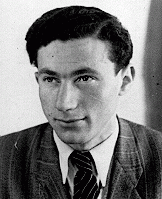
-
Aaron Lejzerowicz
ID CardAaron was one of four children born to a Jewish family in the northeastern Polish town of Zdzieciol. His father was a shoemaker and, along with a business partner, he also ran a shoe store in the town. Aaron attended a private Jewish school, where he studied the Polish language and history as well as Jewish history and Hebrew. 1933-39: On September 1, 1939, Germany invaded Poland. Three weeks later, Poland was partitioned between Germany and the Soviet Union [under the German-Soviet Pact]. Aaron and his…
